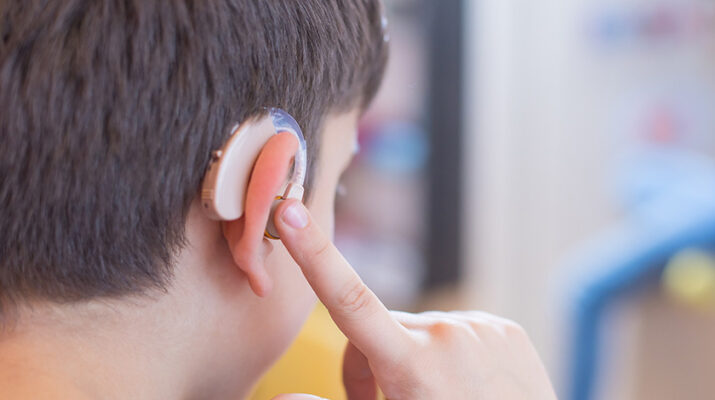By Deborah Jeanne Sergeant
Hearing evaluations are routine for children born in US hospitals. However, hearing loss acquired afterwards can go undetected.
It’s important to catch hearing loss early, say experts.
Joe Kozelsky, retired audiologist in Webster, said that mild hearing losses “are the ones that are easy to overlook” yet they can affect a small child’s ability to understand and learn speech. “There’s a critical stage of language development. If it’s missed, speech and language rarely develop normally if the child has not had adequate hearing at that critical readiness stage.”
Kozelsky is an honorary board member of the Hearing Loss Association of America Rochester Chapter in Fairport and estimates that childhood temporary or permanent hearing loss is at about 20%. Many of these cases relate to illnesses that affect the middle ear.
“There is a prime age for the development of ear problems in children, ages 1 or 2 to maybe 6 or 7 years,” Kolzelsky said.
Some children have an anatomical predisposition to ear infections and if they develop them chronically, along with the typical impairment of hearing, they may miss numerous months of hearing clearly. His own daughter experienced speech regression at 11 months resulting from temporary hearing loss.
“She was very uncomfortable physically because of the enlarged tonsils,” Kolzelsky said. “Once we discovered that, we could treat it.”
After her ear issues were resolved, her speech and language returned to their previous level. His son had a similar experience. Kolzelsky recommends having children evaluated for middle ear issues if they’re “inexplicably irritated and uncomfortable and whiny and listless, and out of sorts. Not always, but frequently this can cause permanent residual effects.”
Causes of permanent hearing loss include illnesses such as mumps, measles and other childhood disease that are preventable with routine childhood vaccinations. Kolzelsky said that a high fever that goes unchecked can destroy the auditory nerves and thus the child’s hearing. A fever treated with Tylenol that remains higher than 103 degrees Fahrenheit in otherwise healthy children warrants immediate medical attention. Seek care for any fever in babies younger than 3 months old. For those 3 to 6 months, 102 Fahrenheit is considered a high fever.
Kolzelsky noted that low birth weight is a risk for hearing impairment.
Signs Your Child Has Hearing Loss
Matthew MacDonald, audiologist and director of Dalzells Audiology in Rochester, said that even when newborns pass their hearing screenings, parents should look for signs of typical hearing.
“Genetically-linked hearing losses can begin during the first few years of life,” he said.
He said that parents should watch for the following signs:
From birth to 4 months, an infant should:
• Startle at loud sounds
• Wake up or stir at loud noises
• Respond to your voice by smiling or cooing
• Calm down at a familiar voice
From 4 months to 9 months, an infant should:
• Smile when spoken to
• Notice toys that make sounds
• Turn its head toward familiar sounds
• Make babbling noises
• Understand hand motions like the “bye-bye” wave
By contrast, signs of hearing loss include:
• Unresponsiveness to sounds
• Cessation of babbling shortly after it has begun
• Delays in speech and language development
• Misarticulation of speech (especially the phonemes S, SH, F, H, TH, CH and K)
• Communication difficulties
• Difficulty following directions
• Sudden change in academic performance and/or behavior problems
• Often very distracted
• Listens to the TV or radio at a loud volume
“If you hand a child a telephone and they report they can’t hear the talker, but they then move it to their opposite ear and they can, pay attention,” MacDonald said. “Unilateral hearing loss is especially difficult to identify as these children usually have normal or near-normal hearing in their other ear.”

